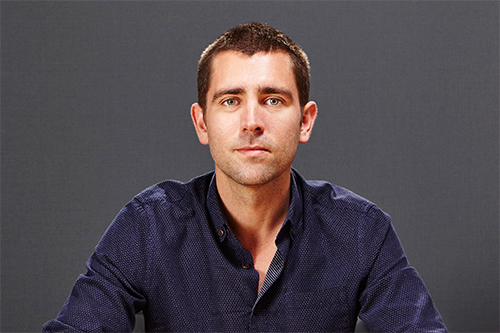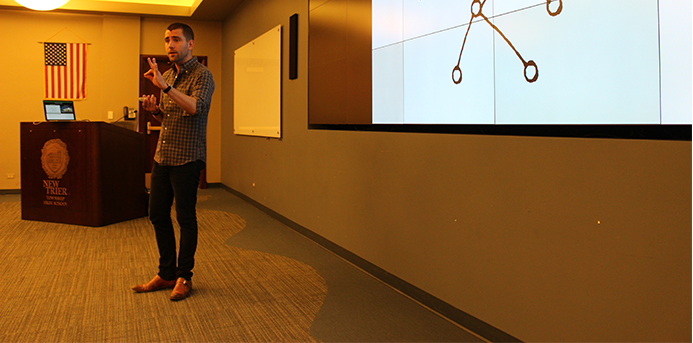In March, New Trier High School honored 11 of their distinguished graduates with Alumni Achievement Awards. The program has recognized 52 graduates since 2011. Recent awardee Chris Cox, Class of 2000, took the opportunity to visit the school and talk with students about what he’s learned as Chief Product Officer at Facebook.
After an introduction by his former math teacher, Cox shared a presentation he delivered to an entrepreneurship school in Ghana, effectively extending the lessons for those launching companies to those about to launch their adult lives.
Cox left the North Shore to study at Stanford and it was there, while working toward his graduate degree, that he was approached to work for The Facebook (before they dropped the “the”).

While “The Social Network” movie depicted the young company in a colorful, teeming industrial office, Cox admits that instead, “It looked like things were about to fall apart and they were just trying to keep it all together. Oh, and there was no Justin Timberlake.” He recalls calling his parents with the news, “I think I’m going to work at this place called The Facebook where you take a picture of yourself and put it online.” He jokes that he could almost hear his mom’s disappointment, but that he was excited about the collaboratively-created directory and how it put users in charge of their own representation.
Though Facebook was conceived as a directory, it was a leap in how we interacted with each other online. Cox says, “Before Facebook, people used cryptic screen names. You were aardvark42 buying Beanie Babies from goldie86.” At the time, Facebook’s simple plan for growth was to move beyond colleges into high schools. Cox urges students, “If you hear a wonderful, elegant, obvious idea, I urge you to pay attention to it.”
Next, as a result of observing fraternity and sorority behavior within the platform, the tech company created the ability to form groups, then allowed groups to create events. Upon noticing users changing their profile pictures daily to tell their personal stories, News Feed was born. More recently, when adding emojis to capture feelings past “like,” Facebook considered the most common one-word responses to posts around the world. Cox advises, “There is no better teacher than emergent behavior.” He also reminds the students that “Your power users know your product better than you.”
The next big lessons came when the company started building products for people they had never met. While it’s easy for a group of recent grads to design for college students, it’s a leap to create usable space for emerging users in other countries. “Most of the world is still on 2G or 3G and, once online, a meaningful part of these users’ paycheck goes toward buying data,” Cox says.
In order for Facebook engineers to design for a group of novice users utilizing slow networks, the company instituted “2G Tuesdays,” one day a week to operate within those data limits. Cox says, “Empathy alone doesn’t work. Engineers have to feel the pain.” The company also has to tune into cultural nuances; for example, in India, rather than asking for a profile “last name,” they use “family name” instead.
Lastly, Cox shared the importance of creating and thriving in a culture of hard feedback. He referenced Pixar Animation Studios as inspiration. “Every animated film starts awful. It’s gonna be about food with a mouse — sounds terrible, right?” says Cox. But Cox calls the Pixar model “feedback while coddling confidence” and says it has resulted in 12 years of stellar movies. He urges students to be open to tough evaluation and ends with, “Hopefully these lessons will help you navigate whatever you do after high school and next you’ll be the one up here talking to your former teachers.”

